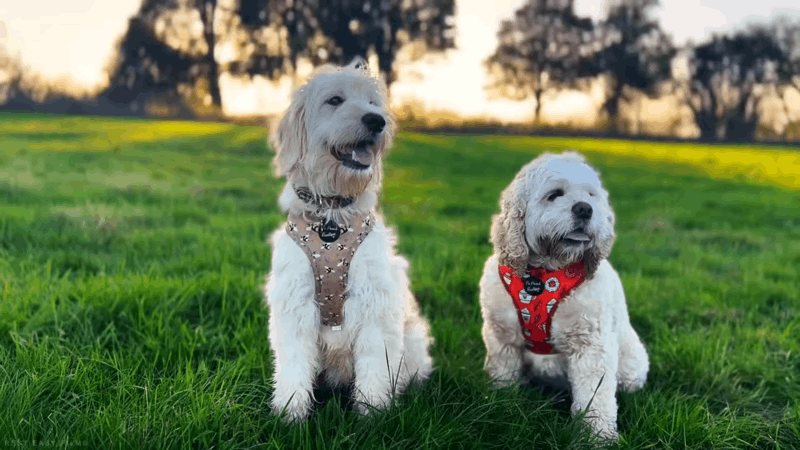No products in the cart.
Many cat parents who are considering using CBD for their cats often wonder that can a cat overdose on CBD oil. This is a frustrating question that concerns many pet owners. As pet owners become increasingly interested in holistic approaches to their cats’ health and well-being, CBD oil has emerged as a potential solution. However, with this rising popularity comes concerns and questions about its safety and potential risks for feline companions.
In this blog, we will discover can a cat overdose on CBD oil, can I give my cat CBD oil, can CBD kill a cat, and how much CBD is too much for a cat. Additionally, we will provide an overview of CBD oil and its growing popularity for pets, with a specific focus on cats.
Can a Cat Overdose on CBD Oil?
Cats can experience an overdose of CBD oil if given excessively high doses. However, it’s important to note that CBD oil overdoses in cats are rare. CBD is generally considered safe for cats, but it’s crucial to follow proper dosage guidelines and consult with a veterinarian to minimize any potential risks.
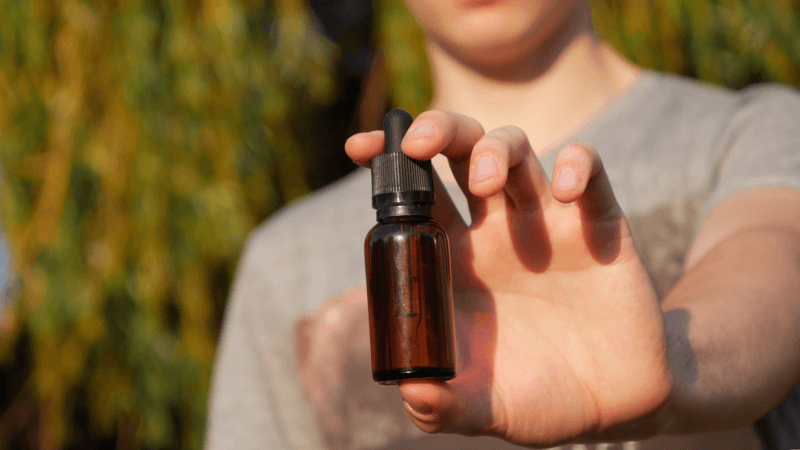
CBD’s Effects on Feline Health
CBD interacts with the intricate feline endocannabinoid system, which is responsible for regulating various physiological processes in the body to maintain balance and harmony. CBD binds to specific receptors, such as CB1 and CB2 receptors, within this system and is believed to have diverse therapeutic effects.
CBD may help cats by lowering inflammation, calming anxiety and stress-related behaviors, promoting relaxation, and reducing discomfort. The particular effects of CBD on cats are still being studied, so it’s crucial to keep that in mind. To fully comprehend how CBD specifically affects the feline endocannabinoid system, additional scientific research is needed.
CBD Oil Dosage Guidelines for Cats
Determining the appropriate CBD oil dosage for cats can be challenging. Several factors influence the dosage, including the cat’s weight, individual response, and the concentration of CBD in the oil. It’s crucial to consult with a veterinarian experienced in CBD use for pets. They can provide personalized dosage recommendations based on your cat’s specific needs and health condition.
Generally, starting with a low dosage is recommended. The doctor may suggest beginning with 0.1 to 0.5 mg of CBD per kilogram of the cat’s weight and progressively increasing the dosage if necessary. It’s crucial to regularly check how your cat is responding to CBD oil to make sure the dosage is efficient and well-tolerated.
Potential Risks of Overdosing
Excessive CBD oil dosages can put cats at risk for negative side effects. Despite the generally favorable tolerability of CBD, it’s crucial to prevent overdose. The following are possible dangers of overdosing:
- Sedation or lethargy: Cats may become overly sedated or excessively sleepy.
- Gastrointestinal upset: Some cats may vomit, have diarrhea, or have a change in appetite.
- Changes in behavior: Cats may exhibit signs of bewilderment, disorientation, or strange behavior.
- Cardiovascular effects: Increased heart rate or changes in blood pressure may occur in some cases.
Signs and Symptoms of CBD Oil Overdose
Signs and symptoms of CBD oil overdose in cats may vary depending on the individual cat and the dosage administered. Here are some potential signs to watch for:
- Excessive sedation or prolonged sleepiness: If your cat is overly sleepy or lethargic and isn’t responding to stimuli, it may be an indication of a CBD oil overdose. Cats may show a lack of energy or have difficulty staying awake.
- Disorientation or confusion: CBD oil overdose can cause cats to become disoriented or confused. They may have difficulty navigating their surroundings, exhibit uncoordinated movements, or display changes in their behavior.
- Poor coordination or difficulty walking: Overdosing on CBD oil may affect a cat’s motor skills and coordination. Cats may appear unsteady on their feet, stumble, or have trouble maintaining balance.
- Increased heart rate or abnormal changes in blood pressure: CBD oil overdose may lead to an increased heart rate or abnormal changes in blood pressure. You may notice your cats’ hearts beating faster than usual or irregularities in their heart rhythm.
- Gastrointestinal upset: Some cats may experience gastrointestinal disturbances as a result of a CBD oil overdose. This can manifest as vomiting, diarrhea, or changes in appetite. Watch for any sudden changes in your cat’s eating habits or signs of digestive discomfort.
Can I Give My Cat CBD Oil?
While it is possible to give your cat CBD oil, it is essential to seek approval from a veterinarian before doing so. They can determine if CBD for cat is suitable for your cat and provide recommendations on dosage, administration methods, and any potential interactions with other medications.
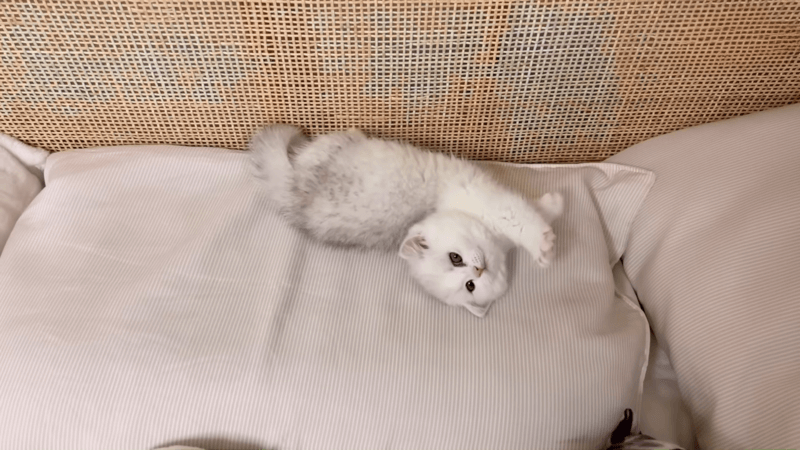
Potential Benefits of CBD Oil
CBD oil may offer several potential benefits for cats. Here are some of the potential benefits :
- Anxiety and stress reduction: By interacting with the endocannabinoid system, which is involved in mood and emotion regulation, CBD oil may help calm nervous or agitated cats.
- Pain management: CBD oil has potent anti-inflammatory properties that may help alleviate pain and discomfort in cats, particularly those with chronic conditions or arthritis.
- Improved appetite and digestion: CBD oil may stimulate appetite in cats that have a reduced desire to eat due to illness or treatment. It can also promote better digestion and reduce gastrointestinal issues.
- Support for aging cats: CBD oil may provide support for older cats by promoting joint health, cognitive function, and overall well-being.
Factors to Consider Before Administering CBD Oil to a Cat
Before giving CBD oil to your cat, there are several factors to consider:
- Consult with a veterinarian: It is crucial to consult with a pet professor who is knowledgeable about CBD use. They can assess your cat’s health, consider any underlying conditions, and provide guidance on appropriate dosage and administration.
- Quality and source of CBD oil: Choose a high-quality CBD oil specifically formulated for cats. Look for products that are tested for purity, free of harmful contaminants, and derived from organic hemp.
- Individual cat’s health and sensitivity: Cats may react differently to CBD oil, so it’s important to consider your cat’s overall health, medical history, and any known sensitivities or allergies. Some cats may be more sensitive to CBD than others.
- Potential drug interactions: CBD can interact with certain medications, so it’s important to inform your veterinarian about any medications your cat is currently taking. They can advise on potential interactions or adjust dosages accordingly.
- Start with low doses: Begin with a low dose of CBD oil and gradually increase it as needed while monitoring your cat’s response. This allows you to find the optimal dosage that works best for your cat.
Can CBD Kill a Cat?
CBD (cannabidiol) is generally considered safe for cats, and it is unlikely to directly cause a lethal overdose. However, it’s crucial to be aware that using CBD in cats can have hazards, particularly if insufficient amounts or subpar products are utilized. While CBD itself is not known to be toxic to cats, certain additives or contaminants in low-quality CBD products could potentially be harmful.
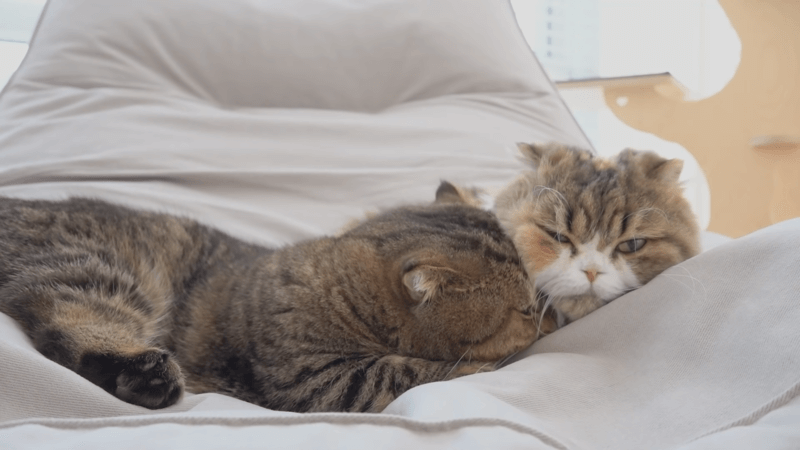
The Safety of CBD Oil for Cats
CBD oil is generally considered safe for cats when administered appropriately and under the guidance of a veterinarian. It’s important to understand that different brands may vary in terms of quality, purity, and concentration because the FDA does not monitor CBD products used on animals.
To ensure the safety of CBD oil for your cat, consider the following:
- Quality of CBD oil: Choose high-quality CBD oil specifically formulated for cats. To verify product potency, purity, and the absence of dangerous contaminants, look for items that have undergone independent testing.
- THC content: THC (tetrahydrocannabinol) is the psychoactive compound in cannabis that can be toxic to cats. Ensure that the CBD oil you choose has very low or no THC content to avoid potential toxicity.
- Start with low doses: Begin with a low dosage of CBD oil and monitor your cat’s response. Gradually increase the dosage if needed while closely observing any changes in behavior or potential side effects.
The Toxicological Profile of CBD in Felines
Cats generally tolerate CBD well, but it’s crucial to realize that there hasn’t been much research done on the compound’s toxicological profile in felines. Cats may have different sensitivities or responses to CBD compared to other animals or humans.
While rare, some potential adverse effects of CBD in cats may include sedation, gastrointestinal upset, or changes in appetite. It’s important to monitor your cat closely when starting CBD oil and report any unusual or concerning symptoms to your veterinarian.
How Much CBD Is Too Much for a Cat?
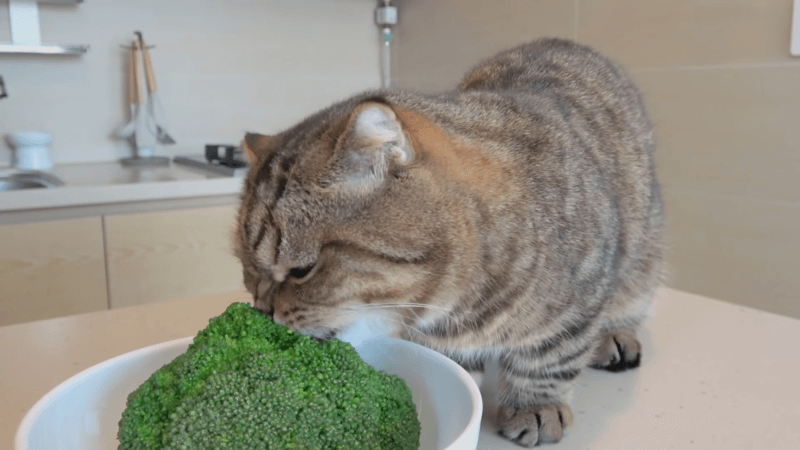
The threshold for determining an appropriate CBD dosage is considered excessive for a cat and can vary depending on factors such as the cat’s size, weight, individual sensitivity, and the concentration of CBD in the product. It is crucial to consult with a veterinarian experienced in CBD use for pets to determine the appropriate dosage for your cat and ensure you do not exceed the safe limits. They can provide personalized advice based on your cat’s specific needs and health conditions.
- Start with a low dosage: Start with the lowest CBD dosage suggested for your cat’s weight, which is often between 0.1 and 0.5 mg per kilogram.
- Gradually increase the dosage: If necessary, increase the dosage gradually over time while monitoring your cat for any adverse effects or changes in behavior. Follow the dosage recommendations provided by your veterinarian.
- Observe your cat’s response: Pay close attention to how your cat responds to CBD oil. Look for any signs of sedation, gastrointestinal upset, or changes in appetite. If you notice any concerning symptoms, consult with your veterinarian.
- Follow product-specific guidelines: Different CBD products may have different concentrations and dosing recommendations. Always abide by the manufacturer’s directions, and for advice particular to the product you are using, speak with your veterinarian.
Conclusion
Can a cat overdose on CBD oil? It’s a question that concerns many pet owners, and the answer is reassuring. While CBD oil overdoses in cats are rare, it is crucial to prioritize the safety and well-being of our feline companions. By following proper dosage guidelines and seeking guidance from a veterinarian, we can ensure responsible CBD oil use for cats.
I am Nelson Cooper, I pursue my passion for writing and my belief is that cats love humans. I enjoy traveling and have a deep appreciation for the beauty of nature, as well as a soft spot for animals, particularly cats.


